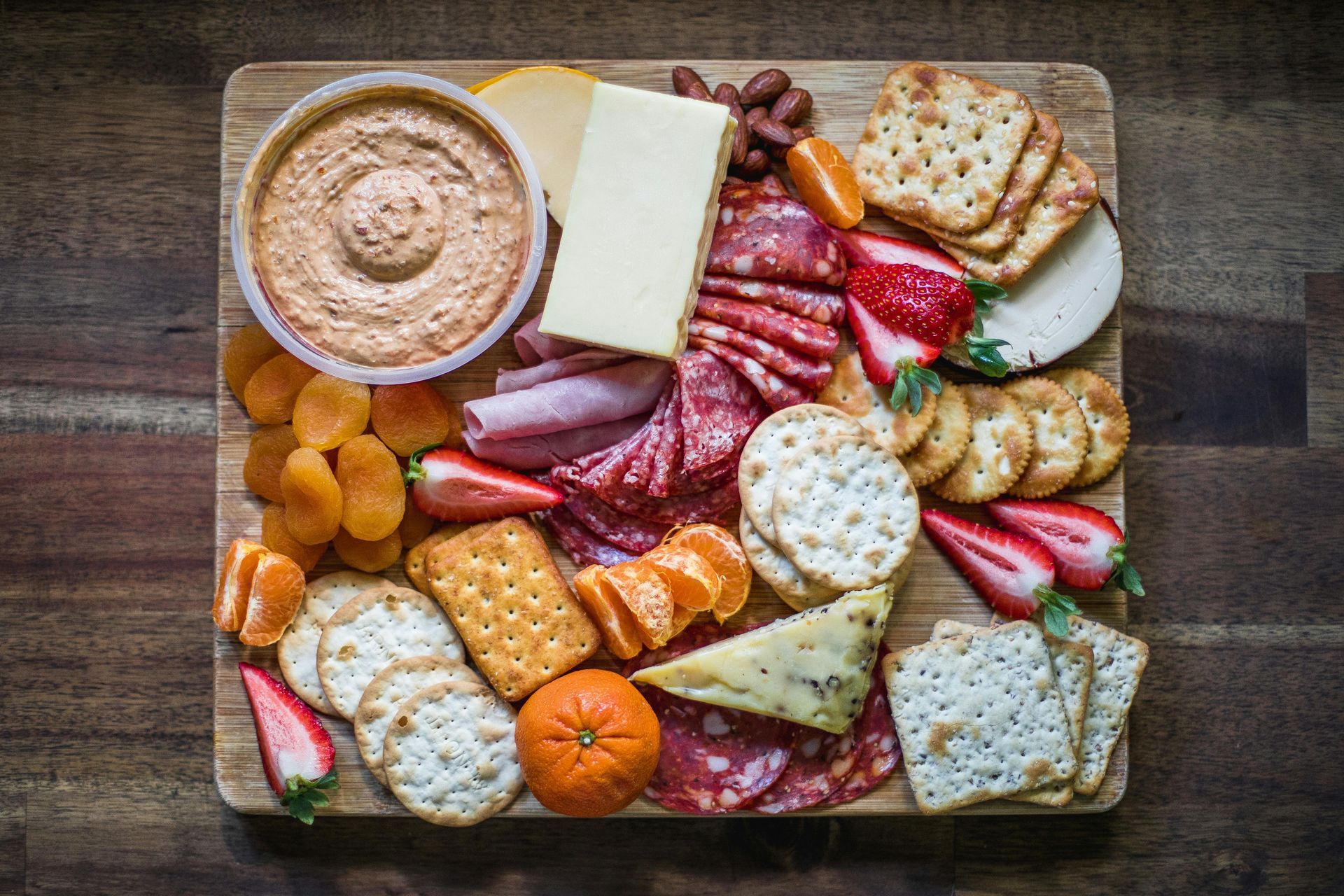What Is The Most Important Meal of the Day – Lunch!
It is almost impossible nowadays to separate your meal of the day and your nutrition. Your nutrition is defined by the answers to three simple questions:
There are several books I will recommend about food, dieting, you know the gist. CLICK HERE to view them all - some are by Noom!
- What do you eat?
- How do you eat?
- When do you eat?
While most conversations about nutrition focus on the first question, the “how” and “when” are just as important to our digestion and well-being.
With so many recommendations floating around, it can be hard to decide what meal pattern is best for you. Should you eat small, frequent meals? Should you fast? Should breakfast be the largest meal of the day?
By observing the traditions of the Mediterranean diet and studying the scientific research, you can glean a few basic observations about healthy meal planning. Unsurprisingly, these same patterns, which will be described below, are rooted in the ancient teachings of Ayurveda.
An Ayurvedic Approach to Meal of the day Timing
Ayurveda recognizes the connection between the mind, the body, and the environment. In a balanced state, the body’s natural daily rhythms mirror those of the universe.
Agni, or digestive fire, is associated with the sun. In the morning, as the sun rises, digestion is not yet at its peak. This is a good time to have a light breakfast—recommendations include spiced, warm, and moist foods. Think warm cereal, cooked fruits, or chai tea or coffee with milk. When the sun is strongest, from 12 p.m. – 2 p.m., the body’s digestive fire is also the strongest. This is the best time to consume the largest proportion of daily nutrients. Similarly, when the sun sets, the heat of the digestive fire softens into a cool, calm period of rest-and-digest. This is an optimal time to refrain from eating and allow for restoration.
By following the rhythms of the sun, you help maintain balance in your body, which is consistent with the gold standard of Mediterranean meal patterns as well as scientific research.
The Mediterranean Diet
People are loving these recommendation here about food, dieting, and everything in between. CLICK HERE for more information!
Research on nutrition is often conflicting. In addition to reviewing studies, it can be helpful to take a note from habits rooted in cultural tradition of the world’s most healthy populations.
The dietary traditions of the Mediterranean region of Europe are upheld by physicians and dietitians due to the exemplary health benefits of the Mediterranean diet.
A comparison of eating habits across 10 European countries found the following.
- Compared to central and northern Europe, the people in the Mediterranean regions of the south:
- Snack less
- Consume the largest percent of daily calories at lunch
- As you travel north up the European continent, people:
- Snack more
- Consume a smaller percent of daily calories at lunch
In a separate population-based study analyzing the prevalence of overweight and obesity in 16 European countries, the following trends were reported:
- Individuals in southern, Mediterranean Europe have the lowest body mass indexes (commonly referred to as BMIs—a measure of body fat based on one’s height and weight.)
- The percentage of overweight and obese individuals increases incrementally the further north you go on the continent.
These findings raise the question: Are the people in the Mediterranean so healthy because of what they eat? Or are the when (few snacks) and the how (largest meal mid-day) just as important?
Science Supports Fasting
The three-daily-meals approach is different from a small-frequent-meals eating pattern in that it promotes small periods of fasting between meals, with the longest fast occurring between dinner and the next day’s breakfast.
- It has been demonstrated in mice that short-term fasting leads to an uptake in cellular cleansing, or autophagy. This process is linked with decreased risk of cancer, inflammation, and neurodegenerative diseases.
- The sensation of hunger one feels by short-term fasting is known to increase production of a gene that is linked with improvements to blood sugar regulation and also liver health.
- Another study found that although any sustained increase in daily calories results in weight gain, frequent snacking leads to increased abdominal fat and fatty liver, while an increase in calories from three larger meals daily, with periods of short-term fasting between meals, does not.
What About Breakfast?
In addition to snacking less, the Mediterranean people eat the largest meal mid-day, yet are one of the healthiest populations. This goes against a common myth that breakfast should be the largest meal of the day.
There is a longstanding belief that it is important to eat a large at breakfast. Some research shows that children who consume breakfast daily do benefit over those who skip it—they have cognitive advantages , with better test scores and increased focus throughout the day. Furthermore, childhood breakfast eaters tend to have a healthier BMI and body fat percentage.
These benefits do not appear to extend to adults, likely due to the developed adult body’s increased ability to fast. In a review of research, the USDA states that although sufficient evidence exists to promote breakfast eating in children and adolescents, there is no strong evidence to show that eating breakfast is associated with healthier weight in adults.
A good takeaway: although not the most important meal of the day, a regular breakfast is beneficial to children in establishing meal structure and ensuring adequate key nutrients. For adults, the benefits are not clear; however, a small breakfast as part of the daily routine likely does no harm. Just make sure to save some room for lunch.
3 Tips to Optimize Your Daily Eating Patterns
Tired of chasing around science to understand your body? Ayurvedic tradition may be your preference, as Ayurvedic practitioners have long been teaching what science is now starting to prove.
By following these simple Ayurvedic techniques, you can ensure optimal eating patterns consistent with the traditional Mediterranean diet:
- Eat three meals daily, and limit snacking between meals.
- Eat lightly for breakfast, making lunch the largest meal of the day.
- Eat dinner before 8 p.m. This gives the body a daily fasting period of ten to twelve hours to rest and digest (assuming breakfast is anywhere from 6 a.m. – 8 a.m.).
Whether you are more influenced by scientific research, cultural example, or Mother Nature, these three tips will help to ensure digestive harmony within your own body and, therefore, with the Universe herself.
*Editor’s Note: The information in this article is intended for your educational use only; does not necessarily reflect the opinions of the coachAOG and its associations; and is not a substitute for professional medical advice, diagnosis, or treatment. Always seek the advice of your physician or other qualified health providers with any questions you may have regarding a medical condition and before undertaking any diet, supplement, fitness, or other health program.
You can listen to coachAOG Excuse To Succeed Podcast Here. You will love it.
Thanks for reading this post today. Remember to comment below and share your thoughts.
Ayo Ogunrekun
PS:And remember what #coachAOG always say, make sure to "have an #ExcuseToSucceed."










































































































